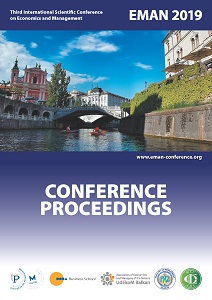CORRUPTION PERSISTENCE IN POSTSOCIALIST SOCIETIES: OPEN SECRETS OR UNDERESTIMATED ASPECTS?
CORRUPTION PERSISTENCE IN POSTSOCIALIST SOCIETIES: OPEN SECRETS OR UNDERESTIMATED ASPECTS?
Author(s): Zvonimir Savić, Ružica Šimić Banović, Ivana Bajakić
Subject(s): Economy, Socio-Economic Research
Published by: Udruženje ekonomista i menadžera Balkana
Keywords: Corruption;Eastern Europe;Governance;
Summary/Abstract: Corruption presents an extreme case of lacking confidence in society’s official structure. It seems to be rather inevitable issue in transitional countries and appears to be closely related with the existence of relationship-based markets and their (too) slow transformation into impersonal rule-based markets. The evidence shows that corrupt deals impose high transaction costs and that corrupt relations are often embedded in legal relations. No part of the World might be considered fully excluded from corruption phenomenon. Yet, research in Eastern Europe indicates that people feel obliged to reward the help of others, especially when dealing with public sector employees. In addition, ordinary citizens consider petty corruption as a (legitimate) reward for given service and even if they use it often, they do not perceive themselves as bribe-givers or bribe-takers. This paper seeks to disentangle ambiguities, complexities and difficulties in its measurement. Therewith it contributes to the debate on corruption as one of the omnipresent informal practices, fine-tuning of its understanding and possibilities to address it in an efficient way.
- Page Range: 673-682
- Page Count: 10
- Publication Year: 2019
- Language: English
- Content File-PDF

